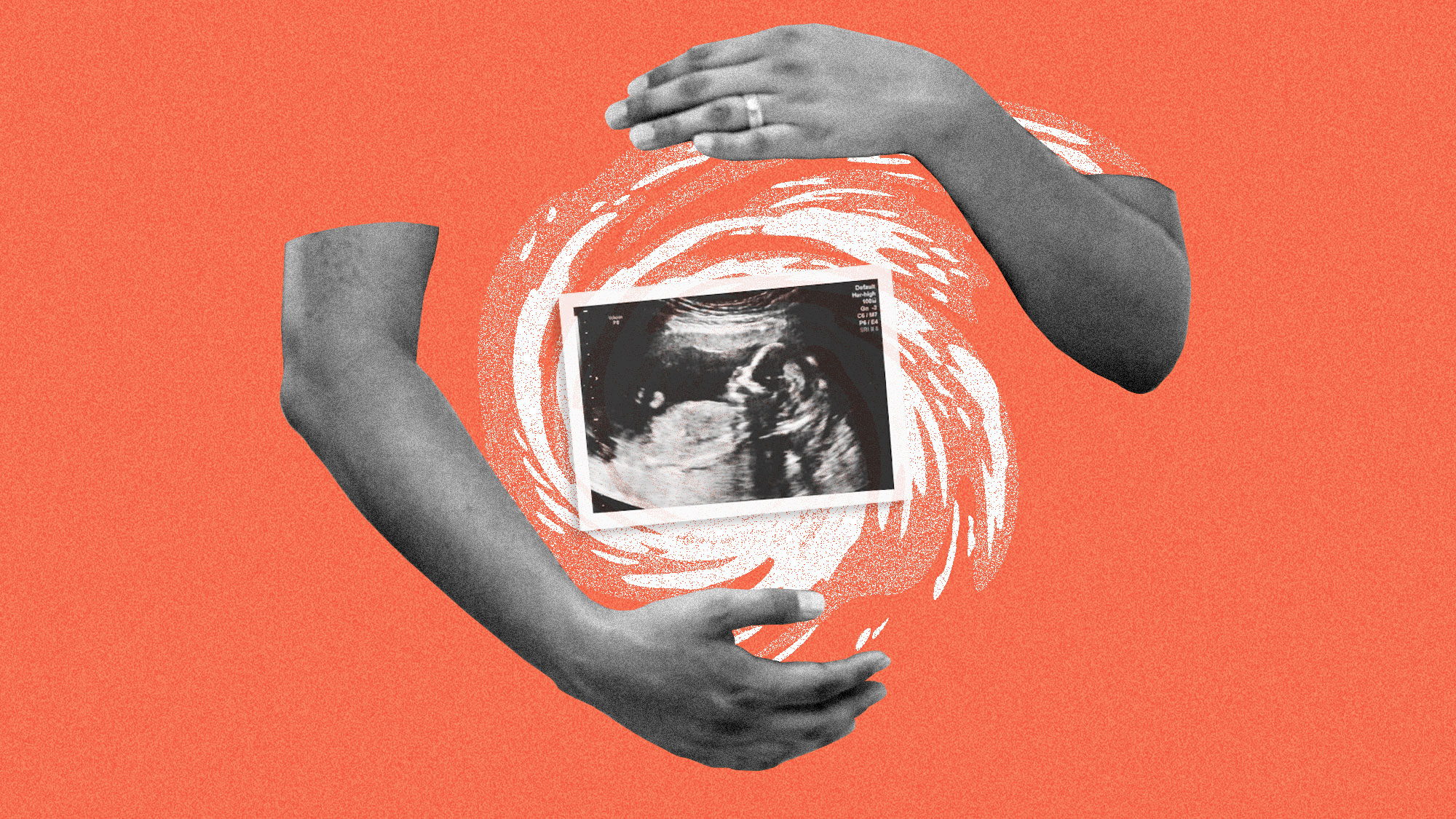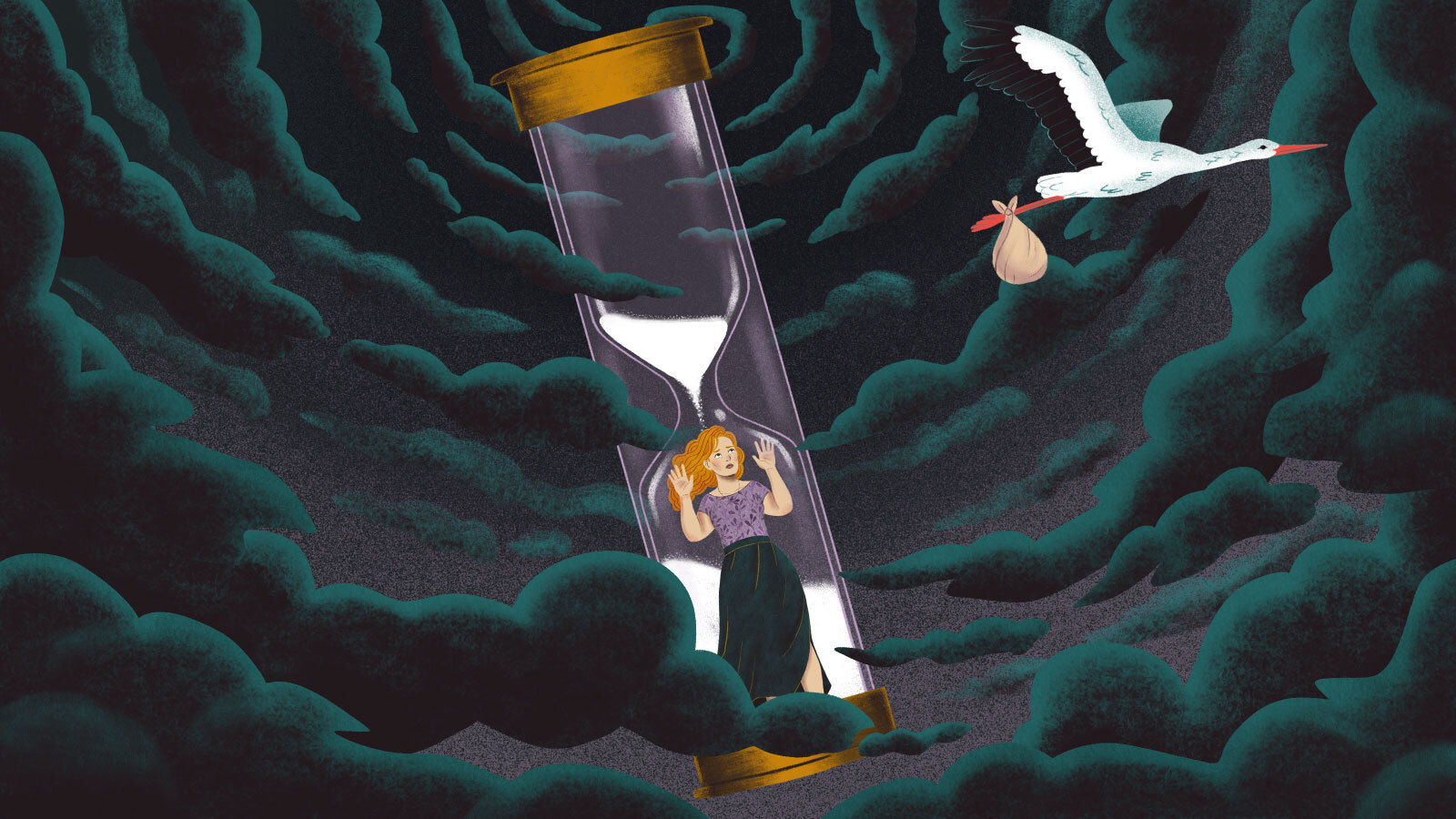Days before Hurricane Irma made landfall in September 2017, Esther Louis was preparing to flee Florida with her husband and four children. The Category 4 hurricane was expected to hit the Florida Keys and move across the state, threatening millions of residents. One of those residents was Louis's client, who was nine months pregnant and living in a house that the Miami doula feared was in too bad shape to withstand the storm.
As a doula, Louis was trained to provide holistic care to her client, anticipating all the factors that could affect her health. She was concerned about how the stress of the impending hurricane and evacuation might affect her client's pregnancy. So she offered to escort her client and her family to Georgia, where Louis was heading and where her client had relatives.
The caravan of the two families set off together, moving slowly in the evacuation stream towards the Georgian border. What could have been an eight hour trip took 24 hours. “It was stressful,” Louis said. Her client began to experience Braxton Hicks contractions which can be caused by stress. Sometimes they switched drivers so she could provide emotional support to her client, who was worried about something going wrong during the trip. “Sometimes people go for the worst outcome, but I say, 'We'll get there, OK? We'll figure it out.”
The experience was one of many times in Louis' career when the worsening climate crisis complicated a client's labor. She realized that if doulas like her were properly trained and learned to communicate with their clients about the risks of hurricane season, flooding and even extreme heat, they would be better prepared in the event of a disaster like Irma.
They would also fill an important information gap that could protect pregnancy, especially among Black people, who face higher climate risks and higher maternal mortality rates.
Over the past decade, an increasing number of studies have linked environmental threats such as extreme heat and smoke from forest fires to an increase in stillbirths, premature births and low birth weights. These factors also cause health problems in pregnant women, including developing preeclampsiaa high blood pressure condition that can be fatal. More recently, research has linked climate-related disasters to higher rates of maternal mental health problems like postpartum depression.
So, in 2024, after several years of doula training in the Miami-Dade area, Louis partnered with Dr. Cheryl Holder, co-founder of Florida Clinicians for Climate Action, a nonprofit that strives to teach health care providers how to incorporate climate change into their work. They won a grant that will help them develop a curriculum and training known as the Doula C-Hot program to teach doulas how to assess the climate risk of their clients and help them better prepare for future climate threats. If the pilot is successful, it could serve as an example of how to train doulas across the country as climate educators.
A survey conducted Louis and other maternal health advocacy groups have found that doulas who provide emotional and physical support to pregnant women are already seeing the everyday risks that climate change poses to their clients' pregnancies and are doing what they can to help them cope.
In New Orleans doulas appeared in emergency shelters to find out what people need to safely feed their babies when access to sterile water needed for baby formula is not always available or private breastfeeding facilities are difficult to find. And in Philadelphia doulas play an important role in educating patients about exposure to environmental contaminants such as lead or air pollution.
Some doulas, like Sierra Sankofa of Houston, have even developed disaster planning workshops aimed at pregnant women and families with young children, which can help them be better prepared to stay warm in the winter and cool in the summer. She covered topics such as how to know if breast milk is safe if the power goes out and how to sanitize bottles without electricity.
But while many doulas are already helping their patients survive climate-related disasters, the study found another trend: 95 percent of them wanted more training and resources to help pregnant people cope with environmental threats and hazards.
So far, a pilot program in Florida, which has been running for almost a year, has trained 12 doulas on the impact of climate change on pregnancy and maternal health. It follows a model developed by Holder, a co-author of the project who similarly trained doctors to understand climate-related health risks. She wanted to focus her efforts on reaching pregnant people, especially the marginalized populations she already works with as a physician.
“Where else should we start if not with pregnant women? It's two lives, the next generation,” she said. “And if we can’t learn the lessons to save the newborn, the unborn baby and the mother, how are we as a society going to do anything?”
She knew that doulas could be more effective in this work because of the close relationships they develop with their patients and the time they spend with them. They also conduct home visits and can more holistically understand what may be affecting a pregnant woman's health.
Nationally, doulas are being recognized for their additional care, with many states passing laws covering their services under Medicaid in recent years to improve birth outcomes, especially for women of color.
As part of the project's training, doulas work with their clients to assess their readiness, said Louis, who helped develop the assessment tool. They ask them questions like do they have air conditioning? Or someone they can borrow $50 from in an emergency? Do they have somewhere to go if trouble happens?
Depending on the answers, doulas may offer advice such as where to find a cooling center or resources, including portable air conditioners for those without air conditioning. They also help their clients, for example, find out if they live in a flood zone and help them develop plans to prepare for a hurricane or other natural disaster. They then re-evaluate their patients after these climate meetings to see if they are now better prepared to handle heat or hurricanes during pregnancy. They have worked with over 40 clients so far. If the pilot program is successful, they hope to develop tools and training to make it available outside of Florida.
They are already thinking about how to reach more pregnant women, said Zainab Jha, a researcher evaluating the program. First, they would like to expand the language of their materials, which are in English. In the parts of Miami-Dade and Broward counties where they work, there are communities that speak Haitian Creole and Spanish. Some of their doulas are able to translate, but they would like to focus on language equity as the program develops.
In the meantime, other models are being developed. In Oregon, Nurturely, an advocacy group that focuses on perinatal equity or improving pregnancy outcomes, is working on a similar train-the-trainer model, slated to launch in 2026, that aims to increase midwives' knowledge of wildfire season and wildfire smoke. “The perinatal period is a very delicate period. Therefore, there are certain needs and preparations for people in this category,” said Awer Yakubu, program director of the organization.
Many of the state doulas Yakubu spoke with know about the dangers of wildfires, but “they don’t know where to start or what to tell their patients,” she said. This training will focus on filling this information vacuum and connecting clients to resources. In Oregon, for example, pregnant Medicaid patients can use their coverage to pay for things like air conditioners and air purifiers that can protect them from exposure to heat and smoke.
However, there are limitations to using doulas to reach those who are most socioeconomically vulnerable to the climate crisis. Doula care is expensive, and although Florida may reimburse doulas through the state's Medicaid program, in practice it is difficult for doulas to qualify and get paid. In Texas, where Sankofa works, she said current Medicaid payments do not take into account community doulas who specifically help marginalized groups, recognizing only certain certifications. Many community doulas are trained outside of these certifying bodies and address the needs of their clients holistically, she said. She advocates changing the law to provide a broader definition of who can meet these principles.
But even if there is progress in improving doula coverage, the future of Medicaid itself is in question. Most clients covered by the Florida pilot program are on Medicaid, and nationally the program covers 41 percent of all births. But due to upcoming program cuts made under the Trump administration, coverage may be reduced.
“I think that’s the biggest problem right now,” Jha said. “I think we're all actively trying to learn from each other and brainstorm to figure out what can be done. But I think that's going to be a huge barrier.”
While some of the logistical and financial hurdles will be difficult to navigate, Holder believes the training they provide to doulas is critical to the health of pregnant women in a state where climate change is wreaking havoc.
“I would love to see this program fully tested, expanded and integrated into general health care,” she said. “This is the new environment we live in.”










